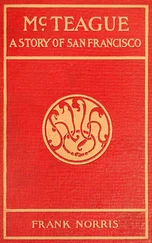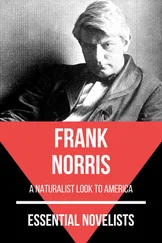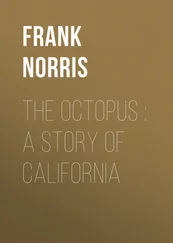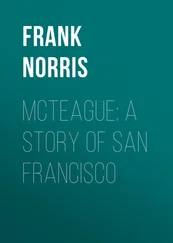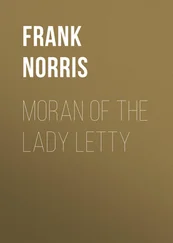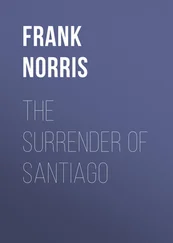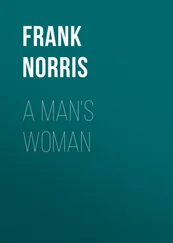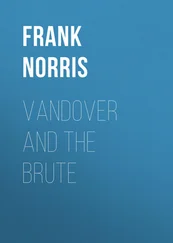Frank Norris - The Pit - A Story of Chicago
Здесь есть возможность читать онлайн «Frank Norris - The Pit - A Story of Chicago» — ознакомительный отрывок электронной книги совершенно бесплатно, а после прочтения отрывка купить полную версию. В некоторых случаях можно слушать аудио, скачать через торрент в формате fb2 и присутствует краткое содержание. Жанр: foreign_prose, literature_19, foreign_antique, на английском языке. Описание произведения, (предисловие) а так же отзывы посетителей доступны на портале библиотеки ЛибКат.
- Название:The Pit: A Story of Chicago
- Автор:
- Жанр:
- Год:неизвестен
- ISBN:нет данных
- Рейтинг книги:3 / 5. Голосов: 1
-
Избранное:Добавить в избранное
- Отзывы:
-
Ваша оценка:
- 60
- 1
- 2
- 3
- 4
- 5
The Pit: A Story of Chicago: краткое содержание, описание и аннотация
Предлагаем к чтению аннотацию, описание, краткое содержание или предисловие (зависит от того, что написал сам автор книги «The Pit: A Story of Chicago»). Если вы не нашли необходимую информацию о книге — напишите в комментариях, мы постараемся отыскать её.
The Pit: A Story of Chicago — читать онлайн ознакомительный отрывок
Ниже представлен текст книги, разбитый по страницам. Система сохранения места последней прочитанной страницы, позволяет с удобством читать онлайн бесплатно книгу «The Pit: A Story of Chicago», без необходимости каждый раз заново искать на чём Вы остановились. Поставьте закладку, и сможете в любой момент перейти на страницу, на которой закончили чтение.
Интервал:
Закладка:
"Honestly, Landry?" she asked, as though he were telling a thing incredible.
He swore to her it was true. His eyes snapped. He struck his palm with his fist.
"An old maid like me?" repeated Laura.
"Old maid nothing!" he vociferated. "Ah," he cried, "you seem to understand me. When I look at you, straight into your eyes—"
From the doorway the cook announced that the man with the last load of furnace coal had come, and handed Laura the voucher to sign. Then needs must that Laura go with the cook to see if the range was finally and properly adjusted, and while she was gone the man from the gas company called to turn on the meter, and Landry was obliged to look after him. It was half an hour before he and Laura could once more settle themselves on the cushions in the parlour.
"Such a lot of things to do," she said; "and you are such a help, Landry. It was so dear of you to want to come."
"I would do anything in the world for you, Laura," he exclaimed, encouraged by her words; "anything. You know I would. It isn't so much that I want you to care for me—and I guess I want that bad enough—but it's because I love to be with you, and be helping you, and all that sort of thing. Now, all this," he waved a hand at the confusion of furniture, "all this to-day—I just feel," he declared with tremendous earnestness, "I just feel as though I were entering into your life. And just sitting here beside you and putting in these curtain hooks, I want you to know that it's inspiring to me. Yes, it is, inspiring; it's elevating. You don't know how it makes a man feel to have the companionship of a good and lovely woman."
"Landry, as though I were all that. Here, put another hook in here."
She held the fold towards him. But he took her hand as their fingers touched and raised it to his lips and kissed it. She did not withdraw it, nor rebuke him, crying out instead, as though occupied with quite another matter:
"Landry, careful, my dear boy; you'll make me prick my fingers. Ah—there, you did."
He was all commiseration and self-reproach at once, and turned her hand palm upwards, looking for the scratch.
"Um!" she breathed. "It hurts."
"Where now," he cried, "where was it? Ah, I was a beast; I'm so ashamed." She indicated a spot on her wrist instead of her fingers, and very naturally Landry kissed it again.
"How foolish!" she remonstrated. "The idea! As if I wasn't old enough to be—"
"You're not so old but what you're going to marry me some day," he declared.
"How perfectly silly, Landry!" she retorted. "Aren't you done with my hand yet?"
"No, indeed," he cried, his clasp tightening over her fingers. "It's mine. You can't have it till I say—or till you say that—some day—you'll give it to me for good—for better or for worse."
"As if you really meant that," she said, willing to prolong the little situation. It was very sweet to have this clean, fine-fibred young boy so earnestly in love with her, very sweet that the lifting of her finger, the mere tremble of her eyelid should so perturb him.
"Mean it! Mean it!" he vociferated. "You don't know how much I do mean it. Why, Laura, why—why, I can't think of anything else."
"You!" she mocked. "As if I believed that. How many other girls have you said it to this year?"
Landry compressed his lips.
"Miss Dearborn, you insult me."
"Oh, my!" exclaimed Laura, at last withdrawing her hand.
"And now you're mocking me. It isn't kind. No, it isn't; it isn't kind."
"I never answered your question yet," she observed.
"What question?"
"About your coming to see me when we were settled. I thought you wanted to know."
"How about lunch?" said Page, from the doorway. "Do you know it's after twelve?"
"The girl has got something for us," said Laura. "I told her about it. Oh, just a pick-up lunch—coffee, chops. I thought we wouldn't bother to-day. We'll have to eat in the kitchen."
"Well, let's be about it," declared Landry, "and finish with these curtains afterward. Inwardly I'm a ravening wolf."
It was past one o'clock by the time that luncheon, "picked up" though it was, was over. By then everybody was very tired. Aunt Wess' exclaimed that she could not stand another minute, and retired to her room. Page, indefatigable, declaring they never would get settled if they let things dawdle along, set to work unpacking her trunk and putting her clothes away. Her fox terrier, whom the family, for obscure reasons, called the Pig, arrived in the middle of the afternoon in a crate, and shivering with the chill of the house, was tied up behind the kitchen range, where, for all the heat, he still trembled and shuddered at long intervals, his head down, his eyes rolled up, bewildered and discountenanced by so much confusion and so many new faces.
Outside the weather continued lamentable. The rain beat down steadily upon the heaps of snow on the grass-plats by the curbstones, melting it, dirtying it, and reducing it to viscid slush. The sky was lead grey; the trees, bare and black as though built of iron and wire, dripped incessantly. The sparrows, huddling under the house-eaves or in interstices of the mouldings, chirped feebly from time to time, sitting disconsolate, their feathers puffed out till their bodies assumed globular shapes. Delivery wagons trundled up and down the street at intervals, the horses and drivers housed in oil-skins.
The neighborhood was quiet. There was no sound of voices in the streets. But occasionally, from far away in the direction of the river or the Lake Front, came the faint sounds of steamer and tug whistles. The sidewalks in either direction were deserted. Only a solitary policeman, his star pinned to the outside of his dripping rubber coat, his helmet shedding rivulets, stood on the corner absorbed in the contemplation of the brown torrent of the gutter plunging into a sewer vent.
Landry and Laura were in the library at the rear of the house, a small room, two sides of which were occupied with book-cases. They were busy putting the books in place. Laura stood half-way up the step-ladder taking volume after volume from Landry as he passed them to her.
"Do you wipe them carefully, Landry?" she asked.
He held a strip of cloth torn from an old sheet in his hand, and rubbed the dust from each book before he handed it to her.
"Yes, yes; very carefully," he assured her. "Say," he added, "where are all your modern novels? You've got Scott and Dickens and Thackeray, of course, and Eliot—yes, and here's Hawthorne and Poe. But I haven't struck anything later than Oliver Wendell Holmes."
Laura put up her chin. "Modern novels—no indeed. When I've yet to read 'Jane Eyre,' and have only read 'Ivanhoe' and 'The Newcomes' once."
She made a point of the fact that her taste was the extreme of conservatism, refusing to acknowledge hardly any fiction that was not almost classic. Even Stevenson aroused her suspicions.
"Well, here's 'The Wrecker,'" observed Landry, handing it up to her. "I read it last summer-vacation at Waukesha. Just about took the top of my head off."
"I tried to read it," she answered. "Such an outlandish story, no love story in it, and so coarse, so brutal, and then so improbable. I couldn't get interested."
But abruptly Landry uttered an exclamation:
"Well, what do you call this? 'Wanda,' by Ouida. How is this for modern?"
She blushed to her hair, snatching the book from him.
"Page brought it home. It's hers."
But her confusion betrayed her, and Landry shouted derisively.
"Well, I did read it then," she suddenly declared defiantly. "No, I'm not ashamed. Yes, I read it from cover to cover. It made me cry like I haven't cried over a book since I was a little tot. You can say what you like, but it's beautiful—a beautiful love story—and it does tell about noble, unselfish people. I suppose it has its faults, but it makes you feel better for reading it, and that's what all your 'Wreckers' in the world would never do."
Читать дальшеИнтервал:
Закладка:
Похожие книги на «The Pit: A Story of Chicago»
Представляем Вашему вниманию похожие книги на «The Pit: A Story of Chicago» списком для выбора. Мы отобрали схожую по названию и смыслу литературу в надежде предоставить читателям больше вариантов отыскать новые, интересные, ещё непрочитанные произведения.
Обсуждение, отзывы о книге «The Pit: A Story of Chicago» и просто собственные мнения читателей. Оставьте ваши комментарии, напишите, что Вы думаете о произведении, его смысле или главных героях. Укажите что конкретно понравилось, а что нет, и почему Вы так считаете.


